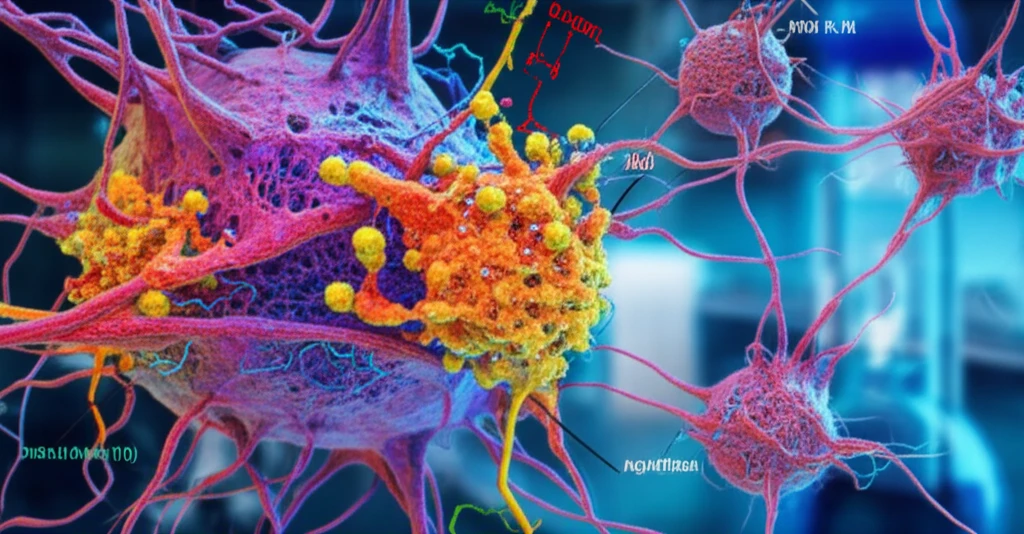
Unlocking the Mystery: How Scientists Are Targeting Alzheimer's at a Molecular Level
"New research dives deep into the intricate world of protein modifications, offering hope for earlier detection and more effective treatments for Alzheimer's disease."
Alzheimer's disease, a condition that gradually erodes memory and thinking skills, affects millions globally, posing a significant health crisis. While current treatments offer limited benefits, a new wave of research is emerging. Scientists are delving into the complex molecular mechanisms underlying Alzheimer's, bringing us closer to more effective interventions. This article explores these exciting developments, highlighting the innovative ways researchers are approaching this devastating disease.
At the heart of this research lies a deep dive into the molecular world. Scientists are now examining the subtle changes that occur within the proteins in the brain. By understanding these changes, they hope to identify new targets for treatment and develop ways to detect the disease earlier, before significant damage occurs.
This article unpacks the latest discoveries, shedding light on how these molecular investigations are set to revolutionize Alzheimer's treatment. We'll look at the critical protein modifications being studied, the advanced techniques used to analyze them, and the promising future this research unveils.
The Molecular Puzzle: Unraveling Protein Modifications in Alzheimer's

The core of Alzheimer's research is understanding the changes that occur in brain proteins. These aren't just any changes; they're modifications to the proteins themselves, altering their function and contributing to the disease's progression. Key players include the amyloid-beta protein, which forms plaques, and the tau protein, which forms tangles. These alterations, or post-translational modifications (PTMs), are the focus of intense scientific scrutiny.
- Phosphorylation: A process where phosphate groups are added to proteins. It's a common modification linked to the tau protein and is often associated with tangle formation.
- Acetylation: The addition of acetyl groups, which can affect protein structure and function. It is being studied to understand its role in tau aggregation.
- Glycosylation: Involves the attachment of sugar molecules to proteins.
- Ubiquitination: A process where ubiquitin proteins attach to other proteins, marking them for degradation.
Looking Ahead: The Future of Alzheimer's Research
The research into molecular modifications is opening new doors in the fight against Alzheimer's disease. As scientists gain a deeper understanding of these modifications, they can develop treatments that precisely target the mechanisms driving the disease. This work is not just about understanding how Alzheimer's develops; it's about finding ways to detect the disease earlier, slow its progression, and ultimately, prevent it. The commitment of researchers to decode the molecular intricacies of Alzheimer's is providing great hope for a future free from the devastating effects of this disease.
